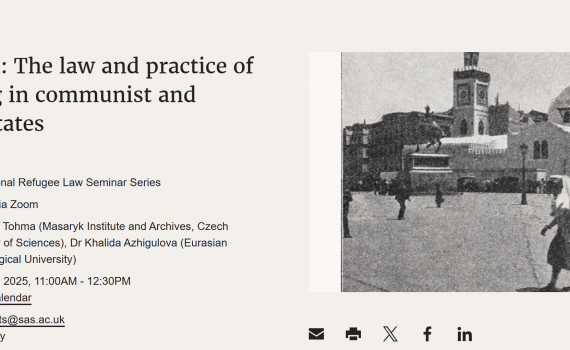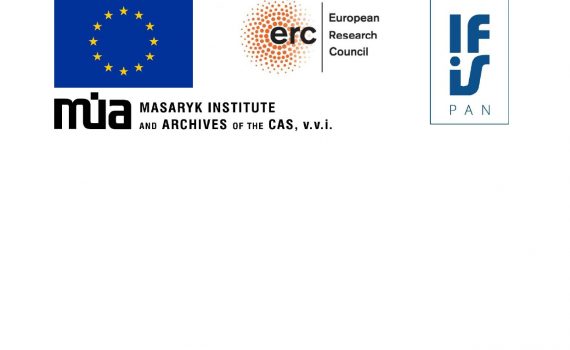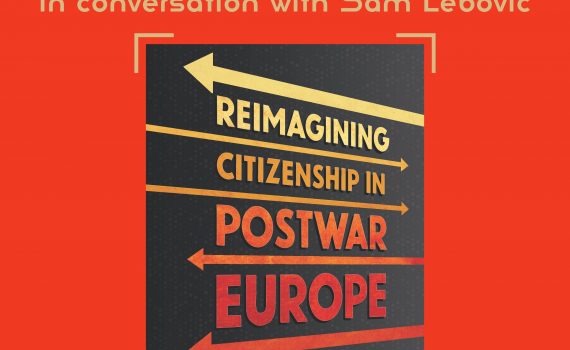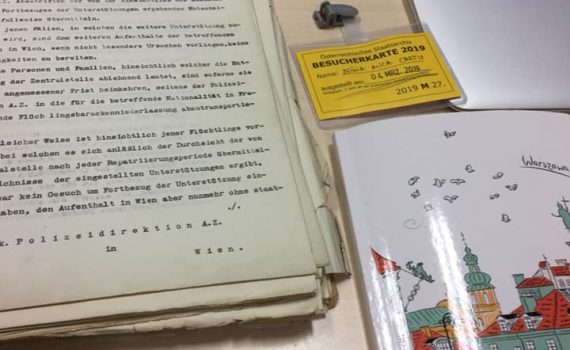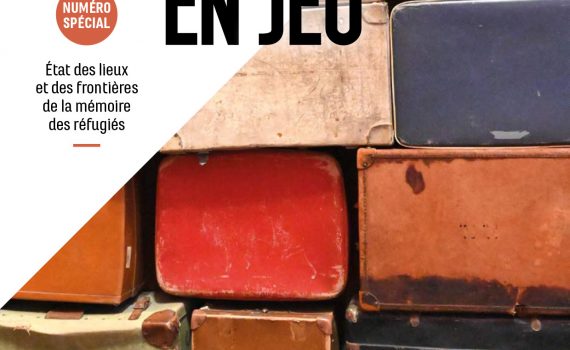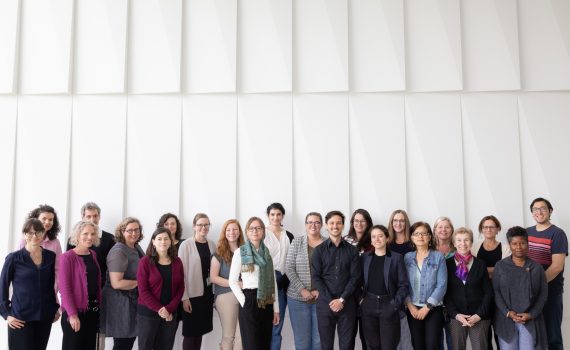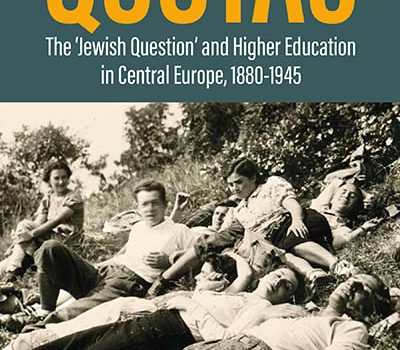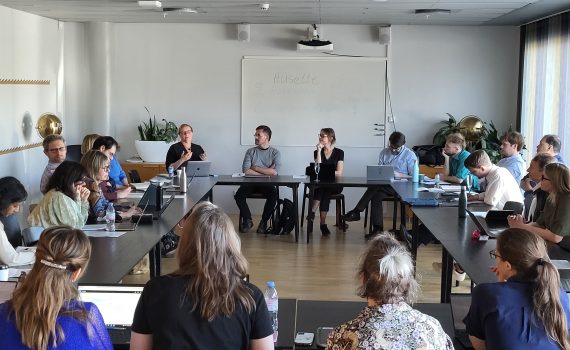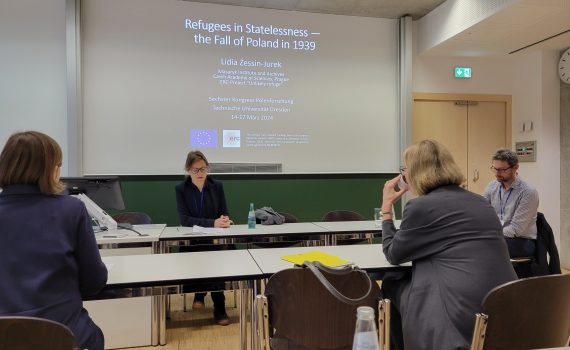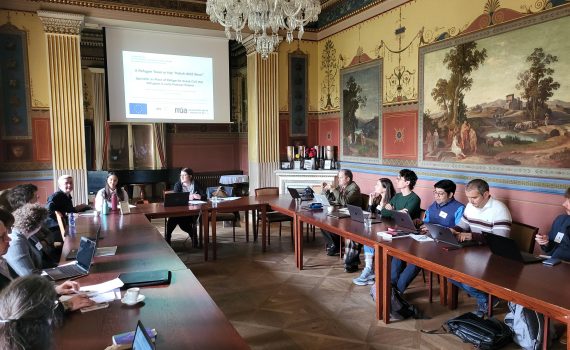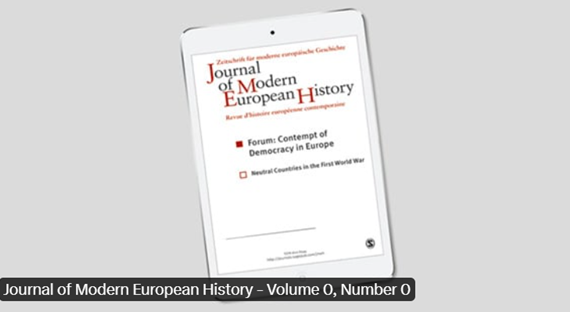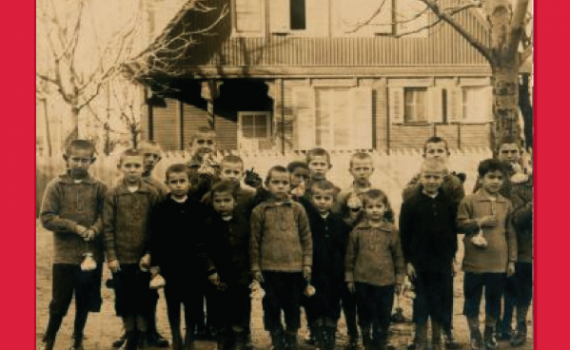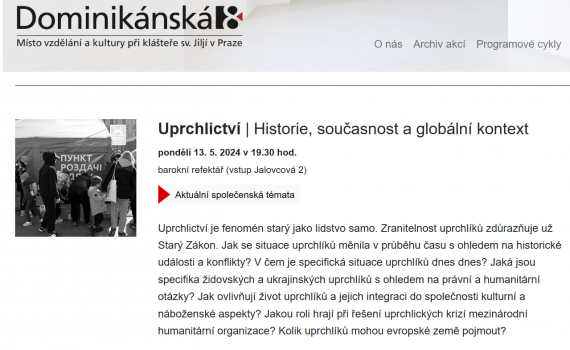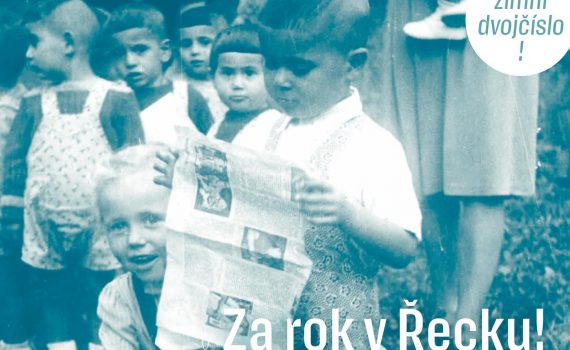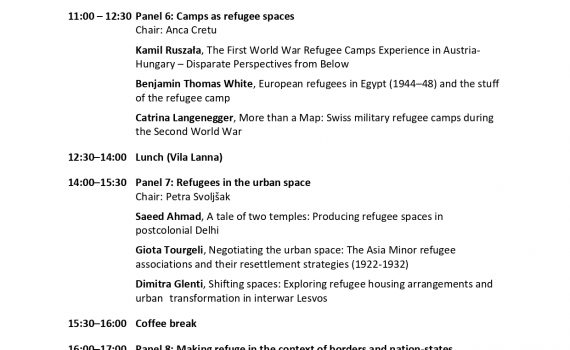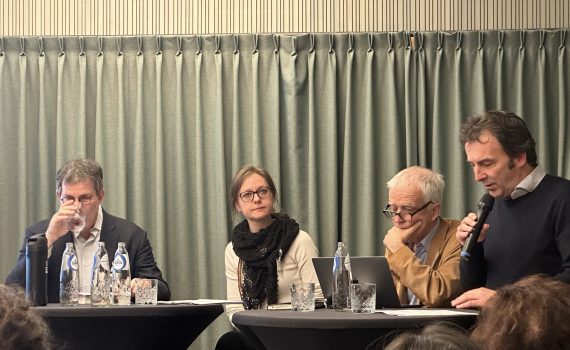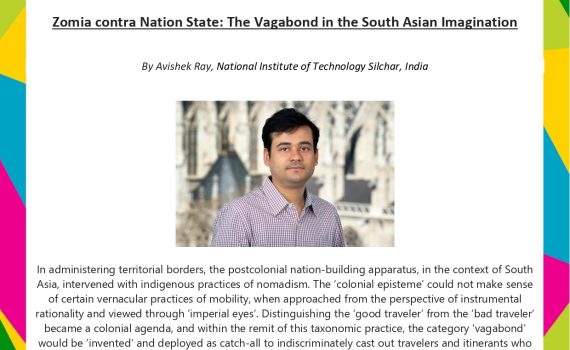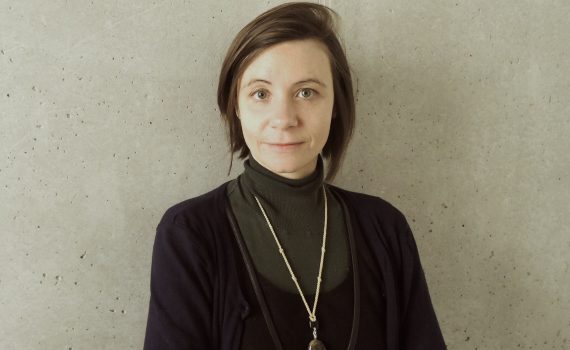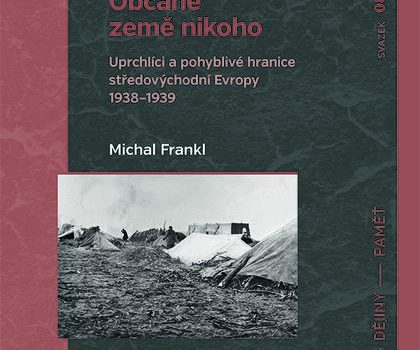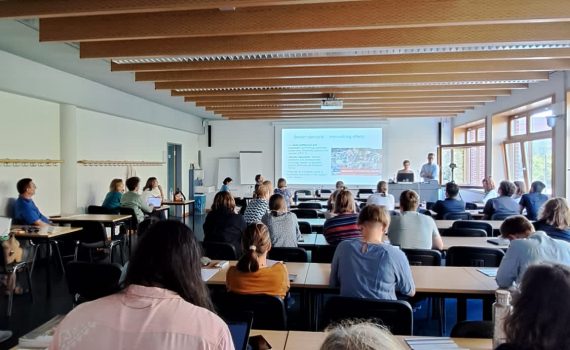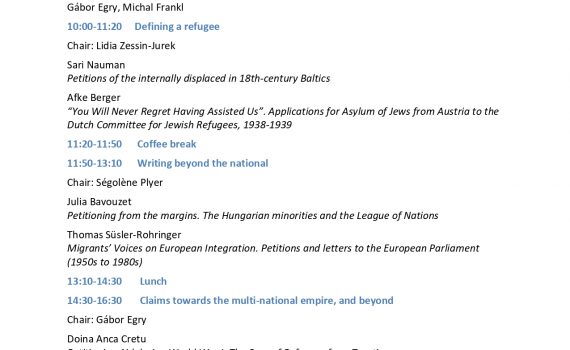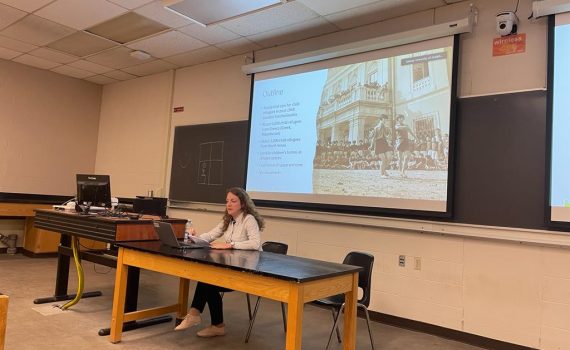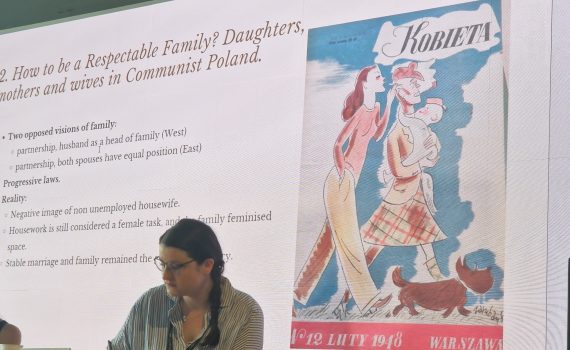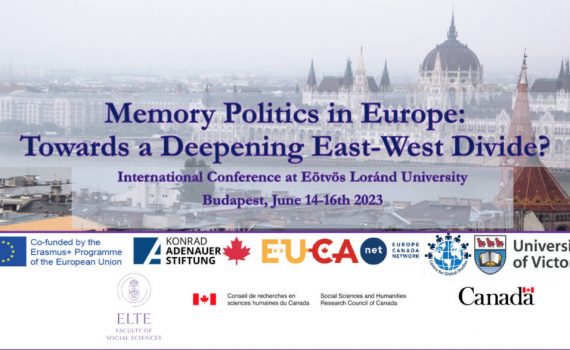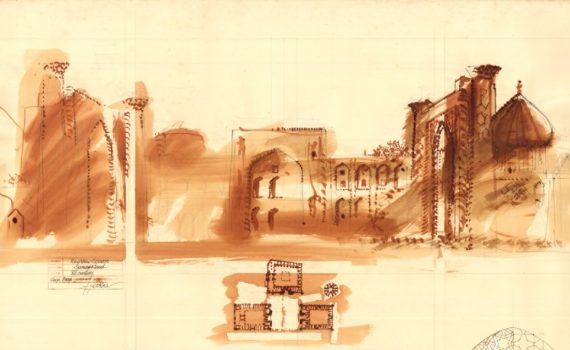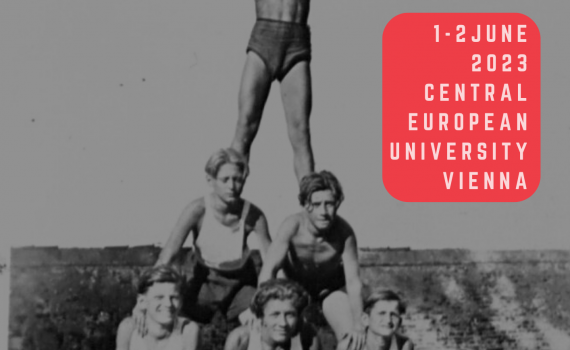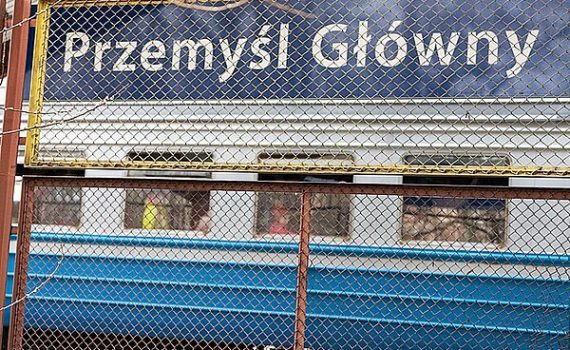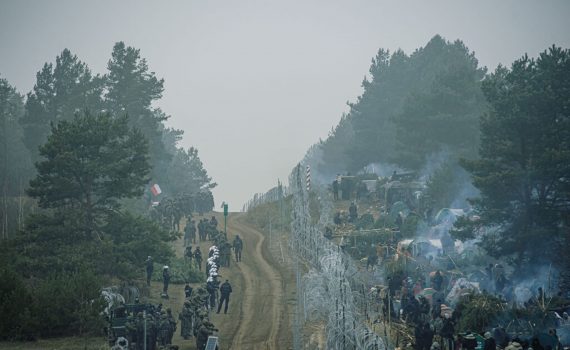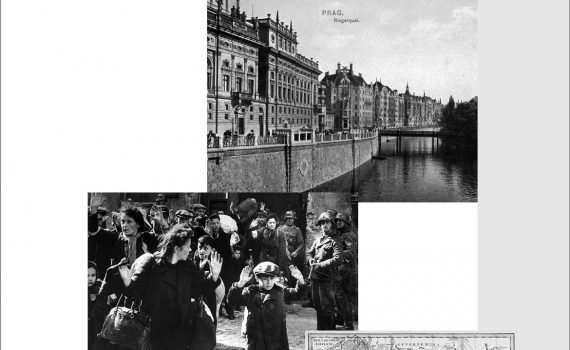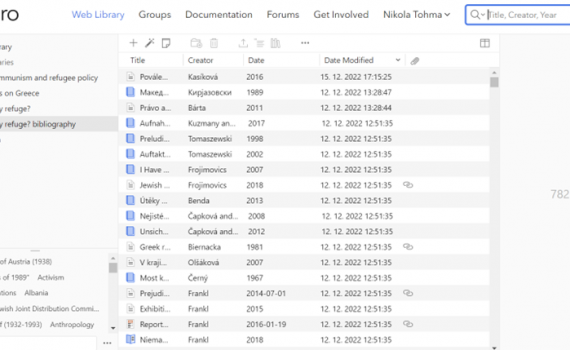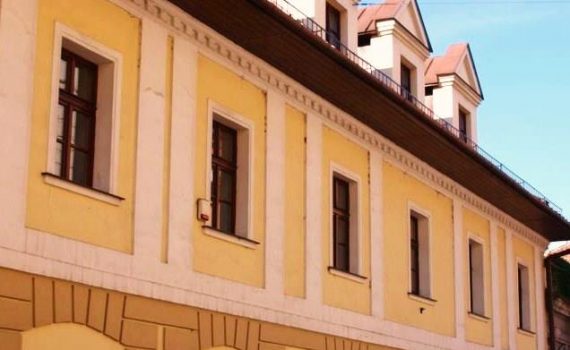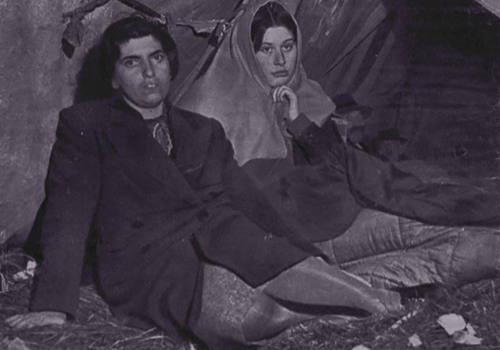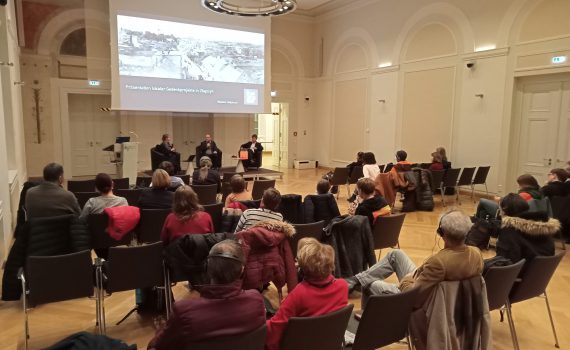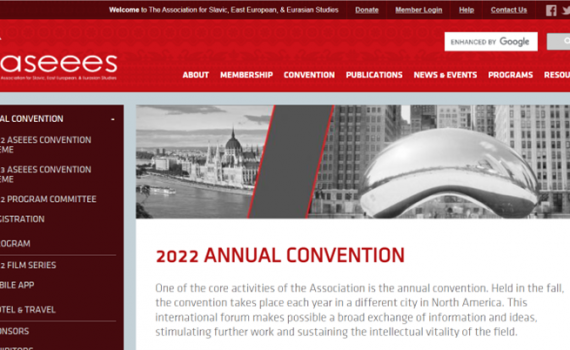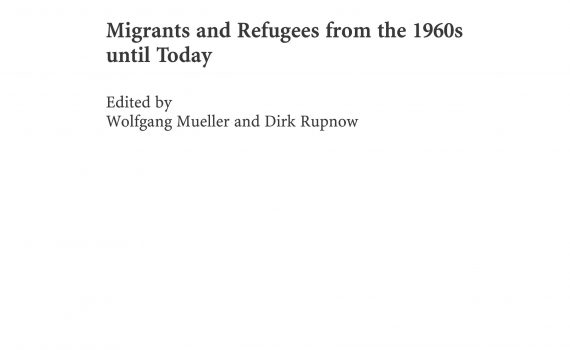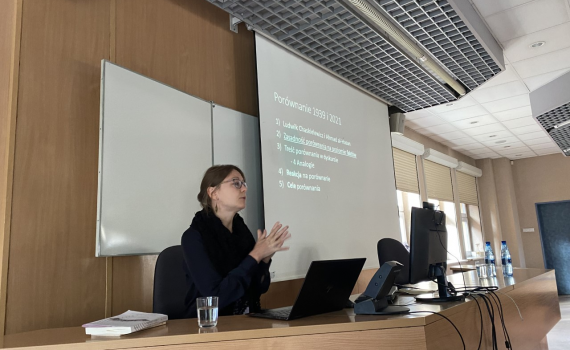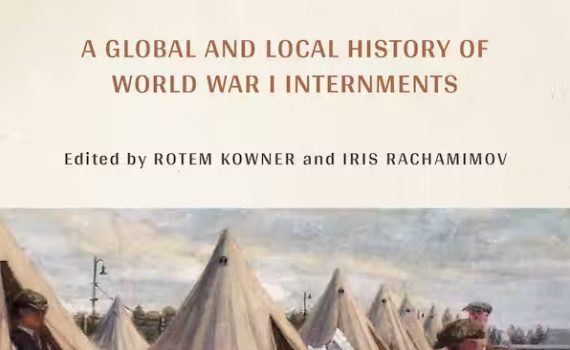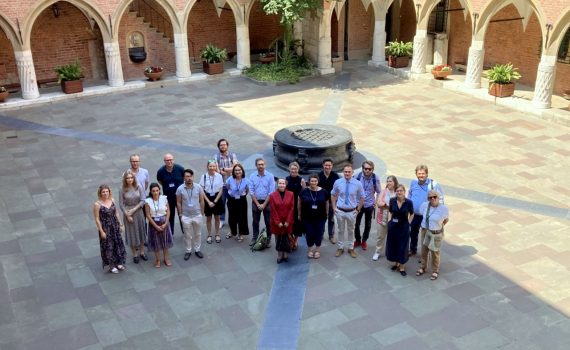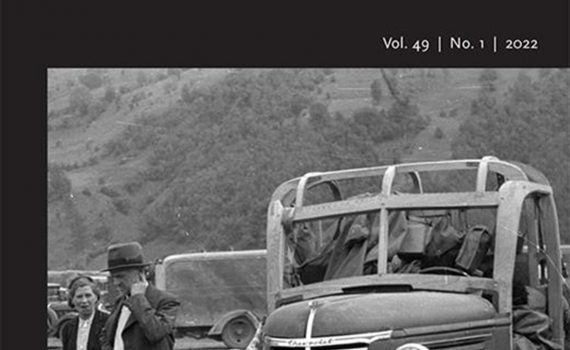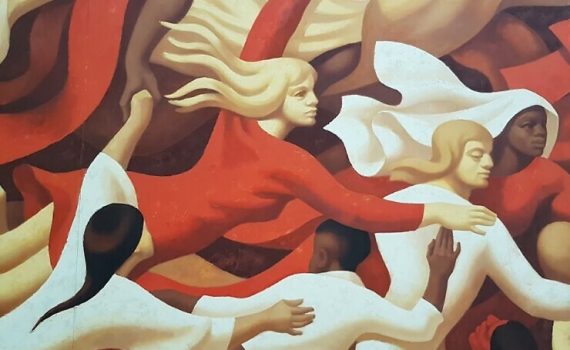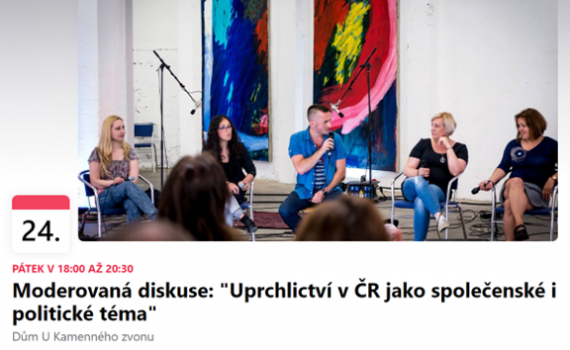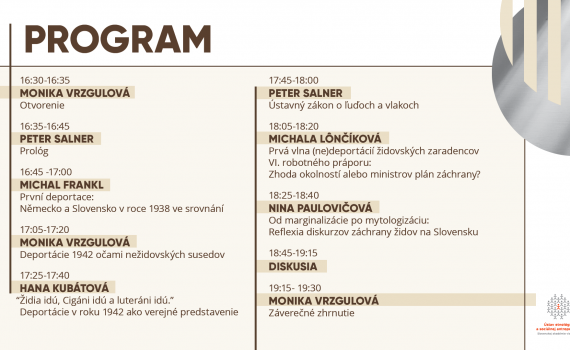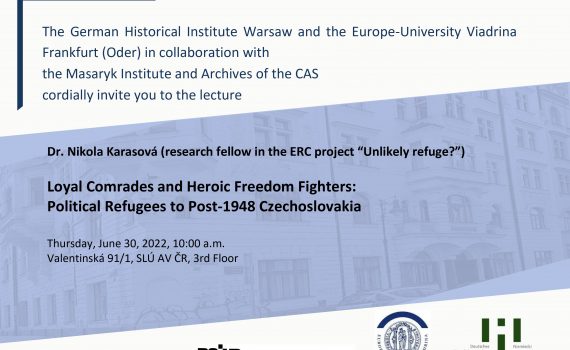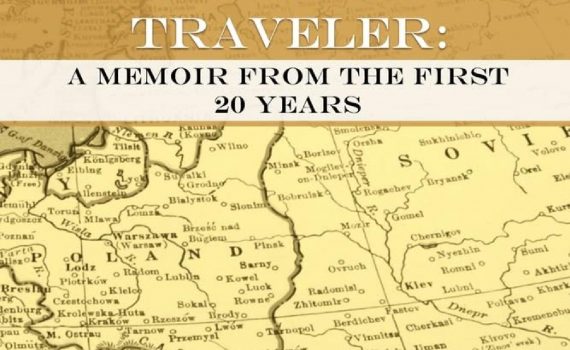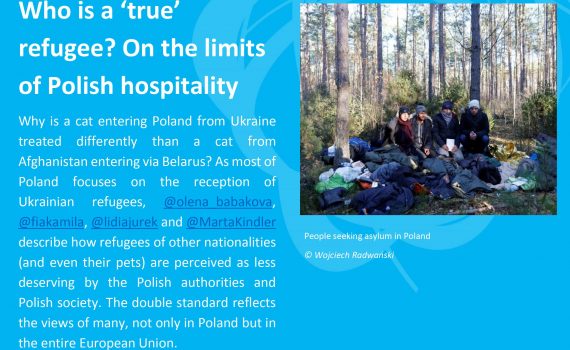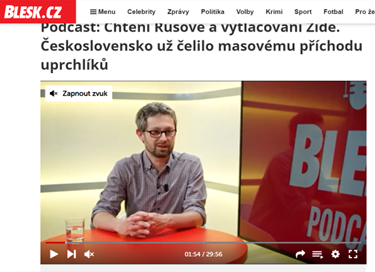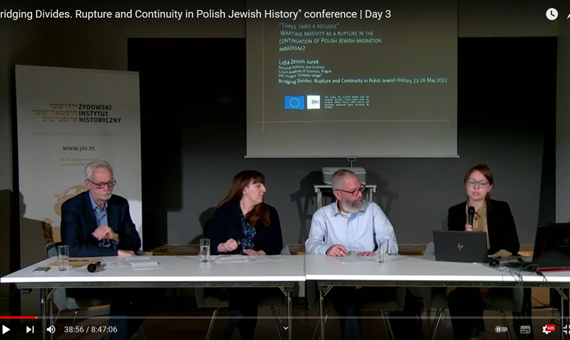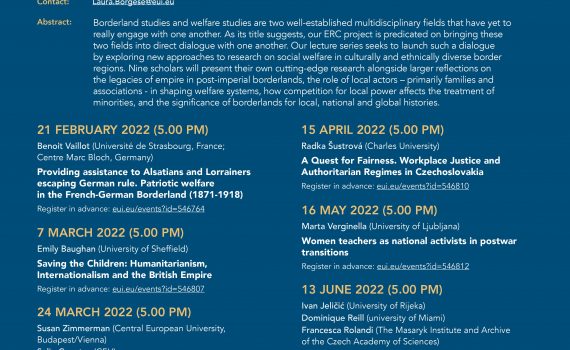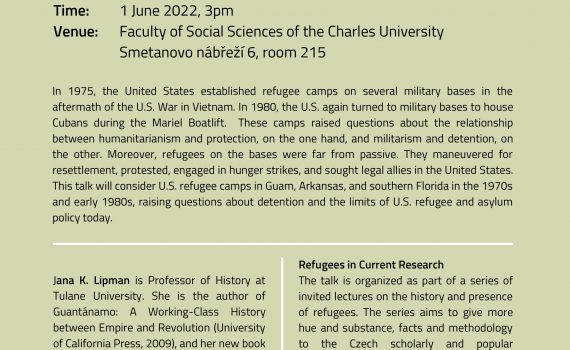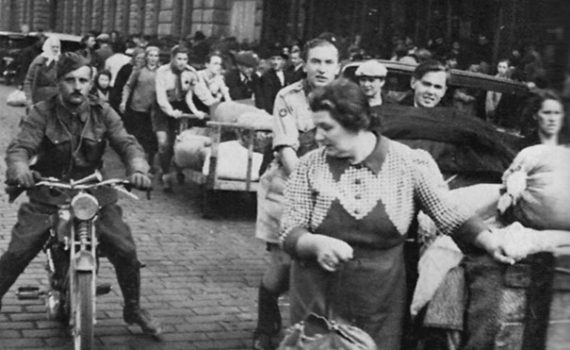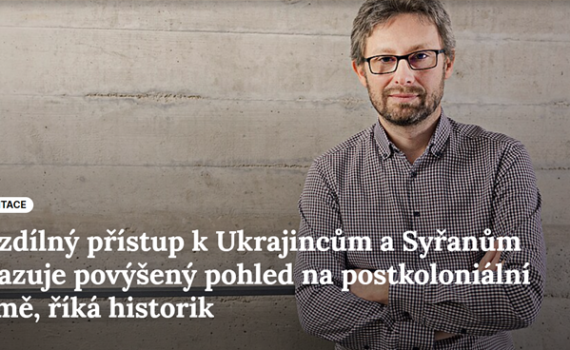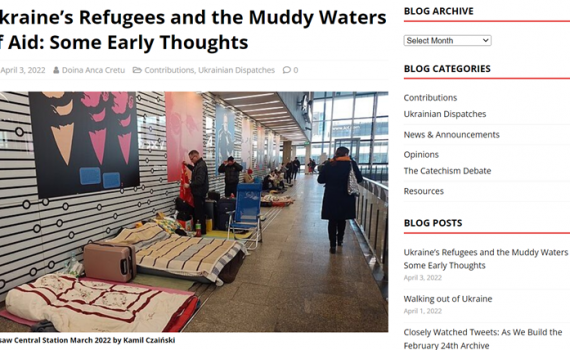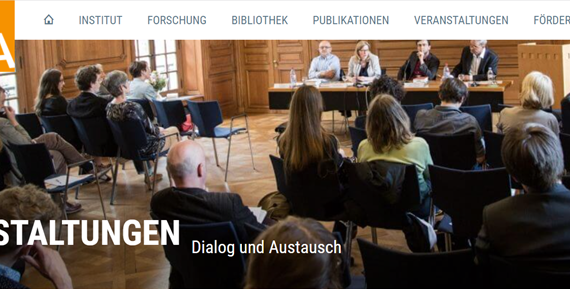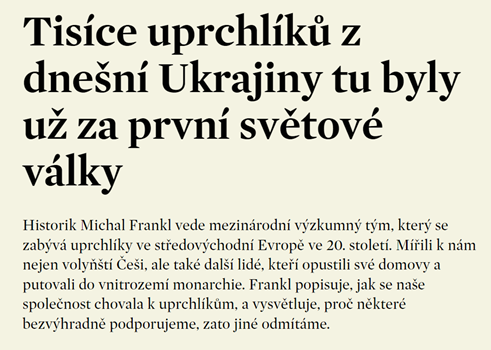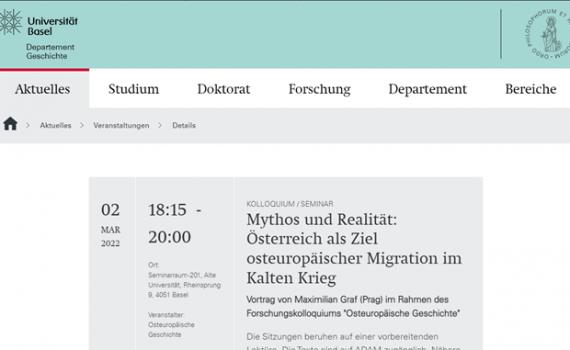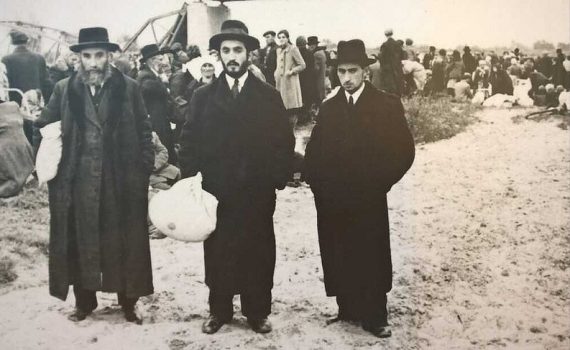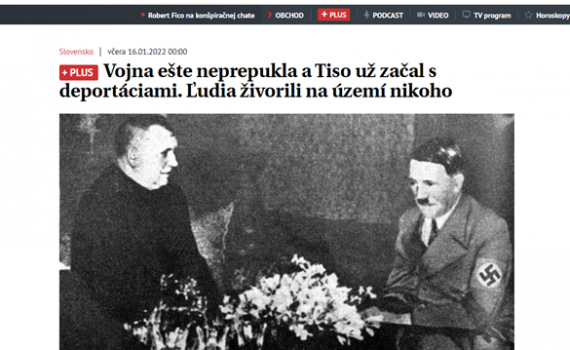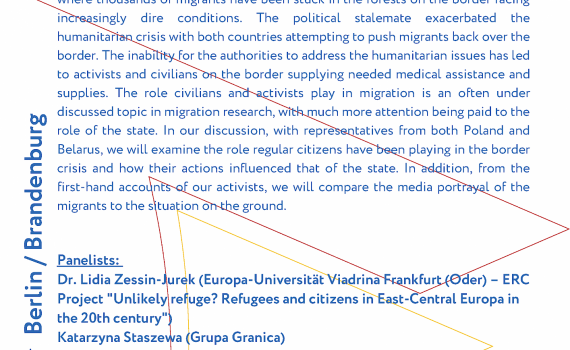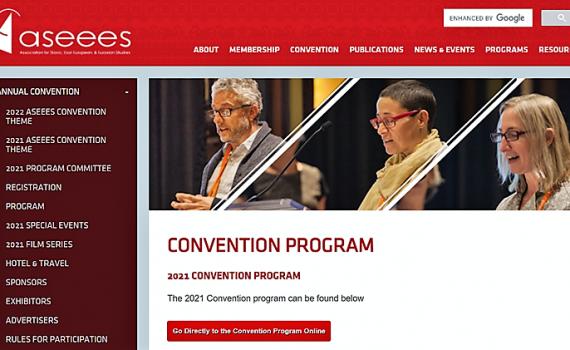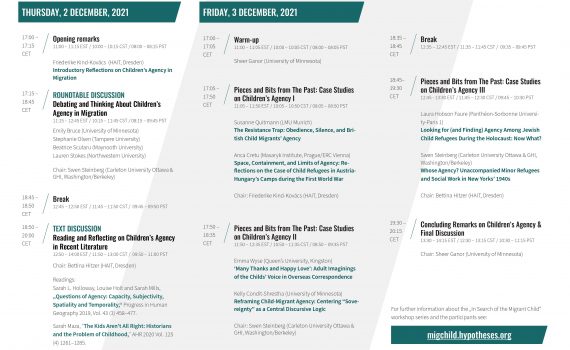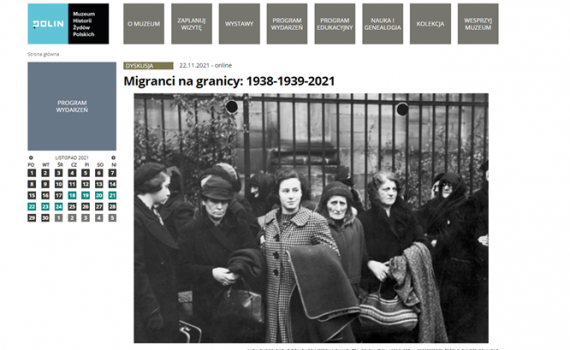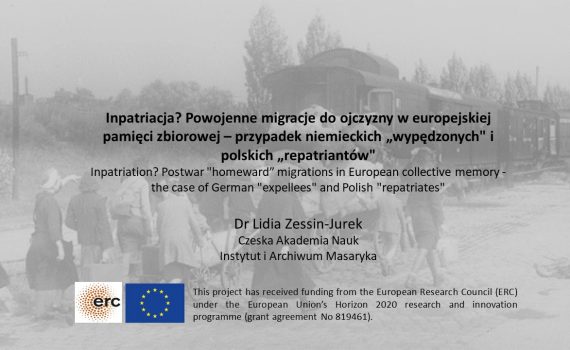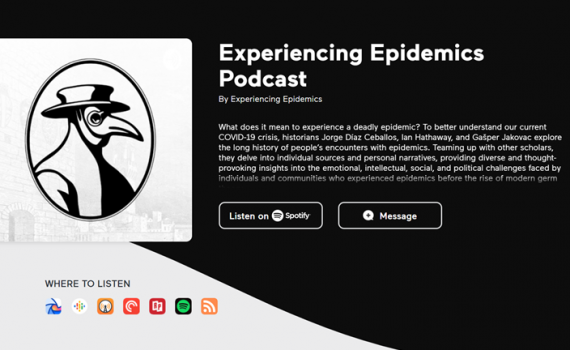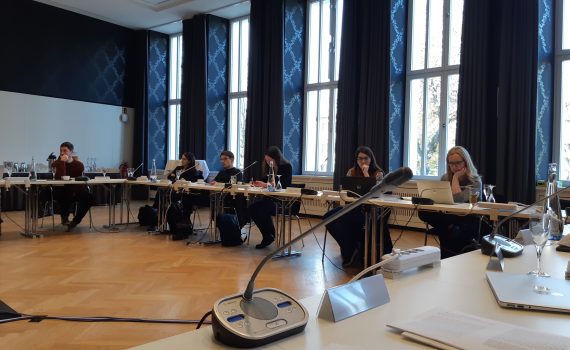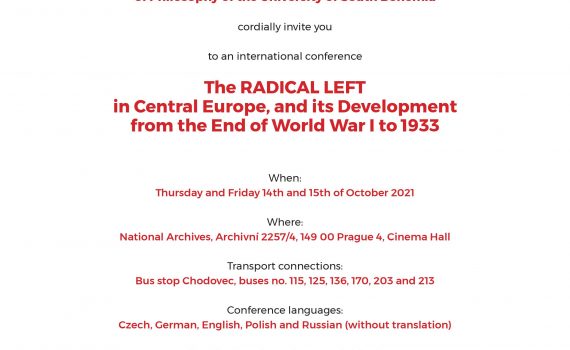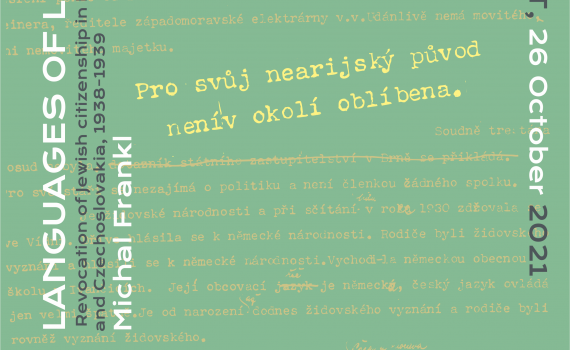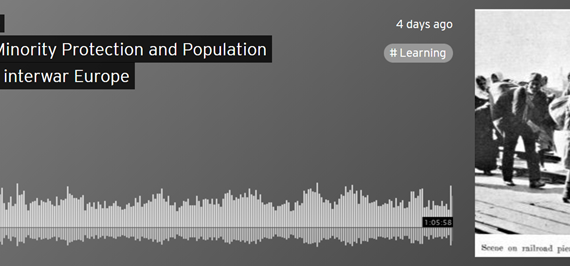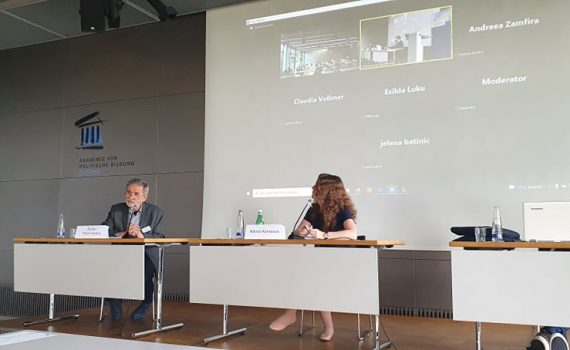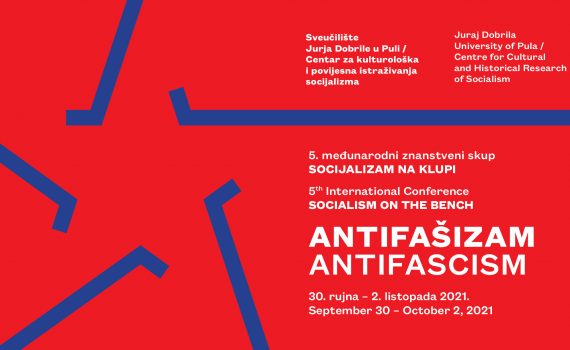A report on the workshop “Petitioning on the Move”, written by Emilia Henkel (Historisches Institut, Friedrich-Schiller-Universität-Jena), was published on H-Soz-Kult. The workshop was organized by Masaryk Institute and Archives, Czech Academy of Sciences; in cooperation with the ERC-funded projects “NEPOSTRANS – Negotiating post-imperial transitions: from remobilization to nation-state consolidation. A […]
Nikola Karasová
Nikola Tohma (Masaryk Institute and Archives, Czech Academy of Sciences) and Khalida Azhigulova (Eurasian Technological University) will present in the online session entitled “Unsung asylum: The law and practice of refugee hosting in communist and authoritarian states.” It is organized within the 15th International Refugee Law Seminar Series: Moments in Refugee History […]
We are pleased to share the information that our colleague Francesca Rolandi has just published her article Yugoslavia is (not) a Refugee Country? Refugees between Transit and Integration in an Ever-Changing Socialist State in the Nationalities Papers. The text is available as open-access! Throughout the Cold War, Yugoslavia was the […]
The recently published collective volume Reimagining Citizenship in Postwar Europe (ed. R. Chin – S.C. Huneke; Cornell University Press 2025) features a book chapter on citizenship and statelessness of Greek Civil War refugees in Czechoslovakia, written by the UnRef team member Nikola Tohma. Reimagining Citizenship in Postwar Europe maps the generation and […]
Prague, June 18-20, 2025 Organised by the ERC Consolidator project Unlikely Refuge? Refugees and Citizens in East-Central Europe in the 20th Century, Masaryk Institute and Archives of the Czech Academy of Sciences In the decades following the Second World War, the image of refugee protection became increasingly associated with the […]
Doina Anca Cretu published her new open-access article entitled “War is destructive, but it reconstructs anew…:” Refugee Education and State Consolidation in Imperial Austria during the First World War in the Nationalities Papers (2024). The article explores aspects of the organization of refugee education in imperial Austria during the First […]
On 26 September 2024 at 1 p.m. CET, Michal Frankl will give a presentation entitled East-Central Europe as a Place of Refuge at the HUN-REN Social Sciences Research Center, Institute of Sociology, in Budapest, Hungary. Róza Vajda (HUN-REN TK KDK) and Veronika Kaszás (Unlikely Refuge?) will assume the role of […]
Exploratory workshop Warsaw, February 3-4, 2025 Organised by ERC Consolidator project Unlikely Refuge? Refugees and Citizens in East-Central Europe in the 20th Century, Masaryk Institute and Archives of the Czech Academy of Sciences, in cooperation with the Institute of Philosophy and Sociology of the Polish Academy of Sciences. The interdisciplinary […]
Our colleague Doina Anca Cretu was interviewed for the July edition of NewsNet, published bi-monthly by the Association for Slavic, East European, and Eurasian Studies (ASEEES). Talking about her work on refugees, refugee camps, and foreign humanitarian aid, she also introduced her new book. In Foreign Aid and State Building in […]
On 29 June 2024, Nikola Tohma and Maximilian Graf participated in the EDUC Summer School at the University of Potsdam, engaging in a debate with students on the differences and similarities of refugee regimes in the West and the East during early Cold War. Political emigration during the Cold War […]
In the new issue of the journal “Migration Studies – Review of Polish Diaspora” (Studia Migracyjne), devoted to the situation of refugees on the Polish-Belarusian border (edited by Natalia Judzińska and Mateusz Krępa), Lidia Zessin-Jurek contributed an essay on the challenges of communicating the protracted “crisis” in an era where […]
The French magazine “Memoires en Jeu” in its special Spring 2024 issue devoted entirely to “Memories of Refugees,” features an interview with our team member, Lidia Zessin-Jurek, on the role of social memory in the current Polish response to the refugee situation on the Belarusian-Polish border. “History and memory are […]
Doina Anca Cretu joined the Eighth Annual Tartu Conference on East European and Eurasian Studies on 20-21 June 2024. She participated in the roundtable discussion titled ““Flyover Country”: East-Central Europe as a Global Region” and acted as a discussant for the panel “Migration & Mobility.” The Tartu Conferenceis a venue […]
Doina Anca Cretu has published her new article entitled Childhood, Experience, Encampment: The Case of Italian-Speaking Refugees in Austria–Hungary During the First World War in the Journal of Contemporary History (2024). This article seeks to uncover and understand children’s experiences in the confining spaces of the refugee camp in Austria–Hungary […]
The United States Holocaust Memorial Museum organised the Silberman Seminar ‘Refugees and the Holocaust’ on 5-13 June 2024, an event in which Lidia Zessin-Jurek was invited to participate. Faculty members discussed the tangled history of the Holocaust and the colonial transit points that refugees navigated, and, among other things, considered […]
Ágnes Katalin Kelemen has published her chapter “Next Year in Brno? Brno’s Significance for Hungarian Jews in the Age of the Numerus Clausus and Beyond” as part of the edited volume Quotas: The “Jewish Question” and Higher Education in Central Europe, 1880-1945 (ed. Michael L. Miller and Judith Szapor). Book […]
Michal Frankl and Lidia Zessin-Jurek participated at the Challenging Concepts in Refugee History workshop, organized at the University of Gothenburg, its Faculty of Humanities, and the project Outsiders Within: Internally Displaced Persons in Early Modern Europe (PI Sari Nauman), funded by Riksbankens Jubileumsfond and the Swedish Collegium for Advanced Study. […]
Several members of the Unlikely Refuge? team joined the 6th Congress on Polish Studies at the Technical University of Dresden (14-17 March 2024), forming a panel entitled “Poland as a Place of Refuge in the ‘Short’ 20th Century between Upheavals and New Beginnings”. Still mostly known as a region producing […]
Michal Frankl published his new article entitled “Vast Workshop and Laboratory: Labor and Refugees to the Bohemian Lands and Czechoslovakia, 1914–39” in the Austrian History Yearbook (2024). As a part of the conversation in the forum “Austria and the Czech Republic as Immigration Countries: Transnational Labor Migration in Historical Comparison” […]
On 11-12 April 2024, the “Making Refuge: Place and Space in Refugee Studies” Workshop took place in Villa Lanna, Prague, organized by the Unlikely Refuge? ERC project (Masaryk Institute and Archives of the CAS) and the Refugees in Europe 1914–1923 Research Group (Faculty of History, Jagiellonian University in Cracow, supported […]
Nikola Tohma published her article entitled “The Role of Martyrdom and Victimhood in the Memory of the Greek Civil War Refugees in Czechoslovakia through the Prism of ‘Refugee’ Literature” as part of a special issue of the Journal of Modern European History on Mass Atrocities in Southeast Europe, edited by […]
Read the new open-access article by Francesca Rolandi entitled “Genuinely Anti-Communist, Tactically Anti-Fascist. Framing Refugeedom in Interwar Yugoslavia (1918–1935)”, published in the recent issue of the Godišnjak za društvenu istoriju. This article looks at how the Yugoslav state-making process affected the country’s attitude toward refugees, and it describes the challenges […]
We cordinally invite you to a public debate titled “Refugeedom: History, Present and Global Context” organized by the Dominikánská 8 cultural and educational centre (Husova 8, 110 00 Prague 1, Czech Republic) on 13 May 2024 at 7:30 p.m. Moderated by Daniela Vrbová, the discussion will be joined by Michal […]
Nikola Tohma published her article “As if we were princes.” Greek children in Czechoslovakia and their perception of their stay in children’s homes in the Czech public history journal Dějiny a současnost (no. 1-2, 2024). The text is part of a special issue commemorating the 75th anniversary of the arrival […]
Museum and Research Centre Kazerne Dossin (Mechelen/Belgium) invited Lidia Zessin-Jurek to talk on the political instrumentalisation of Holocaust memory in Europe at the “Holocaust and Human Rights” Conference (21-22 February 2024). Lidia drew a link between the reflection on this topical issue and how coming to terms with genocide does […]
On 20 March 2024 at 9:30 CET, Nikola Tohma will give an online public talk about the Czechoslovak aid to child refugees from Greece as part of the 4EU+ Spring Seminar The Twentieth Century in European Memory: Themes and Approaches in Contemporary European Memory Studies. The series is organized by […]
The International Review of Social History published the article “Like we would help brothers or sisters”? Practising Solidarity with Greek Civil War Refugees in Socialist Czechoslovakia and the GDR in the Shadow of World War II co-authored by UnRef researchers Nikola Tohma and Julia Reinke. The article investigates the solidarity […]
Francesca Rolandi (Unlikely Refuge?) earned together with Dominique K. Reill and Ivan Jeličić the Annelise Thimme Article Prize for 2021-2022. It was awarded by the Central European History Society for their co-authored article “Redefining Citizenship after Empire: The Rights to Welfare, to Work, and to Remain in a Post-Habsburg World.” […]
Prague, April 11–12, 2024 The refugee experience is inevitably spatial. It involves movement between different places and imagination of locations as spaces of protection or danger, of mobility or immobility. It is no coincidence that terms like refuge, displacement, andasylum express the spatial dimension. Being uprooted often results in a […]
The Principal Investigator of the ERC project “Unlikely Refuge?” Michal Frankl commented on the interwar Czechoslovak refugee policy for the “SOPADE90” film, produced by Friedrich-Ebert-Stiftung Prag to commemorate the 90th anniversary of the establishment of this Prague-based exile organization of the Social Democratic Party of Germany. Available on YouTube in […]
The Principal Investigator of the ERC Project Unlikely Refuge? Michal Frankl has published his book entitled Občané země nikoho. Uprchlíci a pohyblivé hranice středovýchodní Evropy 1938-1939 (in Czech, Citizens of No Man’s Land. Refugees and Moving Borders of East Central Europe, 1938-1939). At the end of the 1930s, groups of […]
On 6-8 September 2023, the European University Viadrina held a conference „Contesting 21st Century B/Orders”. A member of our team, Lidia Zessin-Jurek composed a panel which generated great interest and lively discussion. “Polish Racial Frontier – Refugees on the Eastern Border of Poland” consisted of an interdisciplinary group of academics: […]
International workshop “Petitioning on the Move” will take place on 19-20 September at the Masaryk Institute and Archives of the Czech Academy of Sciences in Prague. The workshop is organized in cooperation with the Unlikely refuge? and Nepostrans ERC-funded projects.
Nikola Tohma participated at the 2023 Conference of the Society for History of Children and Youth (SHCY) at Guelph University, Canada (8-10 June 2023). She presented her paper titled Children’s Homes as Refugee Spaces: Child Refugees and Institutional Care in Socialist Czechoslovakia. Together with Swen Steinberg and Joy Damousi, she […]
The Unlikely Refuge? team members participated at the “Remaking the World in the Shadow of the Cold War. Migrants, Workers, Soldiers, Spies in Post-1945 Reconstruction” workshop that took place at Central European University in Vienna on 1-2 June 2023. Apart from acting as chairs, two our researchers presented their own […]
At the invitation of the EuMePo (European Memory Politics) Jean Monnet Network, Lidia Zessin-Jurek participated in a conference organized in Budapest (June 14-16, 2023), where she presented a paper in the panel “Intergenerational Trauma after Violence: Memory, Narrative, and Agency across Vulnerable Populations” led by Laura Kromják and Oliver Schmidtke. […]
A new article by Lidia Zessin-Jurek has been published in the Journal of Genocide Research on 14 June 2023 (https://doi.org/10.1080/14623528.2023.2221552) During World War II, tens of thousands of Polish Jewish refugees spent several years in Soviet Central Asia. Yet, little of the intriguing character of the Silk Road remains in […]
The Unlikely Refuge? team will coorganize and participate at the “Remaking the World in the Shadow of the Cold War. Migrants, Workers, Soldiers, Spies in Post-1945 Reconstruction” conference at the Central European University, Vienna, on 1-2 June 2023. For more details please visit this webpage.
Doina Anca Cretu will participate in the Minorities at War from Napoleon to Putin | BASEES Study Group for Minority History Biennial Conference 2023 on 12 May 2023. She will join the panel on East-Central Europe in the Era of the Great War chaired by Olena Palko (University of Basel) […]
Amidst Russia’s war against Ukraine and against the backdrop of an often contentious and politicized shared history, Poland has demonstrated extraordinary solidarity with Ukraine, welcoming and helping thousands of refugees. Lidia Zessin-Jurek’s article discusses how various Polish memory frames have affected public attitudes towards the Ukrainian refugees and how in […]
We tend to push them aside on a daily basis, but the faraway conflicts, consequences of climate change and hunger, have long been reaching Europe’s borders, including, for some time, those of Eastern Europe. They take the form of refugees on our doorstep. What happens to these people once they […]
Workshop Call for Papers Prague, September 19-20, 2023 Petitions and addresses to higher authorities offer a unique look into people whose voice is hard to find in the material historians mostly use. Wishes or complaints addressed to places and representatives of power or appeals against decisions from the above was […]
The UnRef team member Francesca Rolandi published her new article titled “Shaping the nation through social work. Aid organizations for Istrian refugees in interwar Yugoslavia” in Italian in the «Qualestoria» journal, no. 2 (December 2022). The full text can be downloaded here Abstract: This article looks at the network of […]
On February 8, 2023, at the invitation of the European University Viadrina in Frankfurt/Oder (Center for Interdisciplinary Polish Studies´ research colloquium), Lidia Zessin-Jurek presented the results of her research on historiography concerning refugee movements in Poland. Importantly for the author, the topic was exposed and discussed there among German, Polish, […]
Deadline: March 1, 2023 Date: June 1-2, 2023 Venue: Central European University (Vienna, Austria) Conference organized by the CEU Jewish Studies Program in cooperation with the CEU Nationalism Studies Program and the ERC Consolidator project ‘Unlikely refuge? Refugees and citizens in East-Central Europe in the 20th century’. “The new world […]
The Unlikely Refuge? (UnRef) team members contributed to the thematical issue of the Journal of East Central European Studies (ZfO/JECES), Vol. 71 No. 4 (2022), entitled East Central Europe as a Place of Refuge in the Twentieth Century: State and Patterns of Historical Research. The individual contributions can be accessed […]
The Unlikely Refuge? project team has published an online and open-access searchable bibliographical database of existing literature relating to research on migration and refugeedom in East-Central Europe, namely Poland, Hungary, Austria, Czechoslovakia, Yugoslavia, and their successor states, during the 20th century. You can access the bibliographical database via Zotero by […]
To mark the 100th anniversary of the birth of Józef Gierowski, the precursor of post-war Judaic studies at Polish universities, an online-format conference was organized by the Institute of Jewish Studies, Jagiellonian University on 22.-23.11.2022: “Żydzi polscy w oczach historków – nowe perspektywy” [Polish Jews in the Eyes of Historians – […]
The UnRef Principal Investigator Michal Frankl joined the recent episode of the EHRI podcast, hosted by Katharina Freise. Michal Frankl investigates No-Man’s Lands and the fate of the refugees who ended up in these desolate places. In this episode, he talks about a photograph on the cover of a French […]
On November 21, 2022 Lidia Zessin-Jurek chaired a discussion accompanying the exhibition on the situation of Jews with Polish citizenship, deported by the Germans to the Polish border in 1938. The fate of Jewish refugees blocked on the Polish side of the border in Zbąszyń is the subject of the […]
Exploratory workshop Among the multifaceted transformations of East-Central Europe in the 1990s, mobility and open borders turned into one of the symbols of the new attachment to the “West”, in both the physical and symbolical way. The quick adoption of the 1951 refugee convention, the introduction of national asylum procedures […]
A new article by Francesca Rolandi (Unlikely Refuge?) has been just published in the recent Historijski zbornik, Vol. 75 No. 1, 2022, entitled “Who is in and who is out? Escapes, expulsions, and the creation of new boundaries during D’Annunzio’s rule in Fiume (1919-1920)”. This article aims to tackle one […]
The interdisciplinary conference centralises the temporal dimension of borders, borderlands, and border regions in and beyond 19th and 20th century Europe. It is organised in a hybrid format by the Luxembourg Centre for Contemporary and Digital History (C²DH) and the Transfrontier Euro-Institut Network (TEIN) in collaboration with the Borders in […]
The team members of the “Unlikely Refuge?” ERC Project will participate at this year’s convention of the Association for Slavic, East European, and Eurasian Studies (ASEEES). The event will take place in Chicago, USA, between 10-13 November 2022. Chaired by Michal Frankl (Principal Investigator), the panel entitled Humanitarianism and Refugee […]
Michal Frankl and Lidia Zessin-Jurek participated in the workshop “Memory, Migration and Populism: The Post-Imperial Historical Legacy and Heritage of Central and Eastern Europe”, organized by the Department of Mobility and Migration, Institute of Ethnology, CAS, 13th – 14th October 2022. For the event’s full program please click here or […]
Maximilian Graf published his article entitled “Humanitarianism with Limits: The Reception of Refugees from the Global South in Austria in the 1970s” in the recent special issue of the Zeitgeschichte journal. The volume was edited by Wolfgang Mueller and Dirk Rupnow and focused on “Migrants and Refugees from the 1960s […]
Lidia Zessin-Jurek (ERC Project Unlikely Refuge?) was invited to a special session of the Badacze i Badaczki na Granicy (Researchers on the Border) group organised by Kamila Fiałkowska and Natalia Judzińska as part of the 11th Conference of the Migration Research Committee of the Polish Academy of Sciences (PAN), held […]
The UnRef’s research fellow Doina Anca Cretu published her chapter entitled Securitized Protection: Health Work and the Making of Refugee Camps in Wartime Austria-Hungary in the new book edited by Ritem Kowner and Iris Rachamimov (Cornell University Press, 2022). For full text click here. Read more on Out of Line, […]
Abstract This article explores the development of modern refugee camps in Austria-Hungary during the First World War by looking at the organization and implementation of child assistance in the camps. The article argues that a state-driven mobilization of relief and rehabilitation was organized to alleviate the plight of refugee children. […]
The UnRef team joined the conference “Humans in Motion: War Crisis and Refugees in Europe 1914-1923”, held at the Institute of History at the Jagiellonian University in Krakow, Poland (29 June – 01 July 2022). The conference was convened by Kamil Ruszała (Jagiellonian University) and Petra Svoljšak (ZRC SAZU). The […]
The recent issue of the Hungarian Studies Review (Vol. 49, Issue 1, July 2022) features two publications by the members of the Unlikely Refuge? team. The UnRef PI Michal Frankl published his article entitled “Mobilizing National History against Refugees: A Czech Polemic on Migration”. His text analyzes the radical anti-migration […]
Nikola Karasová and Julia Reinke presented today their joint paper entitled “We provide aid, like we would help brothers or sisters”? Practicing Solidarity with Greek Civil War Refugees in Socialist Czechoslovakia and the GDR. They participated in the workshop Comparing cultures of solidarity: socialist internationalism and solidarity across the Eastern […]
The UnRef’s principal investigator Michal Frankl joined a public debate on involuntary migration and integration of refugees in the Czech Republic. The in-person event was organized by the intercultural festival RefuFest in Prague on 24 June 2022 at 6 p.m. CET. The working language was Czech. The recording of the […]
Today, on 17 June 2022 at 4:30 CET, you can join online a webinar entitled “And then came the law”, commemorating the 1942 constitutional law on Jewish deportations from Slovakia. Michal Frankl will present a paper on first deportations of 1938, comparing the case of Nazi Germany and the Slovak […]
Please visit the official website of the German Historical Institute Warsaw The event will be transmitted by Zoom (June 30, 10 a.m. CET) Join Zoom Meeting
In this interpretation of his family’s refugee trajectory of survival, Yoram Eckstein touched upon the questions of fate and the room for maneuver within the context of the Second World War and the Holocaust, in which European Jewry found itself: Could Jews really decide their fate? […] It is also […]
In the Western public imagination, there is a certain image of a refugee deserving of our help: poor rather than rich, a woman rather than a man, frail rather than healthy. At the same time, the “ideal refugee” is supposed to be very similar to us, which would make it […]
In a recent interview for the online podcast of a popular Czech newspaper Blesk, Michal Frankl explained the public responses to the current refugee influx from Ukraine to Czechoslovakia by putting it into a historical perspective. For the full video in Czech please click here.
On 23-26 May 2022, Lidia Zessin-Jurek (Unlikely Refuge?) participated in a conference at the Jewish Historical Institute in Warsaw entitled Bridging Divides. Rupture and Continuity in Polish Jewish History. She presented a paper entitled “Three times a refugee – exile as a leading motif in the memoirs of Polish Jews” […]
Together with Ivan Jeličić (University of Rijeka) and Dominique Reill (university of Miami), UnRef’s Francesca Rolandi will discuss their recently published article within the EUI seminar series Social Politics in European Borderlands. The title of the paper is “Redefining Citizenship after Empire: The Rights to Access Welfare, to Work, and […]
The international conference Spaces and Locations of Migration, organized by the University of Vienna on 12-13 May 2022, will feature two presentations by the UnRef team. The project PI Michal Frankl will present on No Man’s Land for Refugees. Scrutinizing Spaces of Migration Beyond the Nation State, while Lidia Zessin-Jurek […]
The UnRef PI Michal Frankl was invited to give a public lecture titled Support and Control: Refugees in the Czech Lands. The event will take place in the Prague Municipal Library on 19 May 2022 from 5 p.m. The working language will be Czech. The lecture will focus on two […]
In a new online interview, the UnRef Principal Investigator Michal Frankl assessed the current humanitarian efforts aiding Ukrainian refugees, putting them in a wider historical perspective. You can access the text in Czech at Lidovky.cz.
The UnRef’s Doina Anca Cretu published an article titled “Ukraine’s Refugees and the Muddy Waters of Aid: Some Early Thoughts” as part of the New Fascism Syllabus’ blog series Ukrainian Dispatches. You can access the full text here in English.
The Principal Investigator of the Unlikely Refuge? project, Michal Frankl, commented on the First World War Jewish Refugees to Moravia for iDnes.cz. The article was published on 4 April 2022 and its full version in Czech is available here.
After pushing back Middle Eastern refugees into the forests on its northern border with Belarus, Poland is now welcoming an unprecedented number of displaced Ukrainians. Deep racial and gender stereotypes are at play in this double standard, and an idea of heroic patriotism that doesn’t understand the people who don’t […]
Research position for a scholar at risk ERC project Unlikely refuge? Masaryk Institute and Archives of the Czech Academy of Sciences Initial deadline May 15, 2022 Full-time position for 24 months The ERC-Consolidator project Unlikely refuge? Refugees and citizens in East-Central Europe opens a new position for a scholar at […]
We invite you to join the hybrid event titled Staatsbürgerschaft: Norm und Praxis politischer Zugehörigkeit im Europa, 1914–1945, organized by the German Historical Institute Paris (DHIP) on April 11, 2022, at 6-8 p.m. (CET). Discussants: Dieter Gosewinkel (Berlin), Michal Frankl (Prague), Claire Zalc (Paris)Moderator: Axel Dröber (DHIP) The discussants are […]
Exploratory workshop Among the multifaceted transformations of East-Central Europe in the 1990s, mobility and open borders turned into one of the symbols of the new attachment to the “West”, in both the physical and symbolical way. The quick adoption of the 1951 refugee convention, the introduction of national asylum procedures […]
The UnRef’s PI Michal Frankl was interviewed by a Czech-language online magazine Reportér. In the article, published on 2 March 2022, he reminds of WWI refugees from the territory of today’s Ukraine arriving in Austria-Hungary (including the Czech lands) during the First World War. Not only the Volhynian Czechs but […]
Maximilian Graf (Unlikely Refuge?) will give a lecture titled Mythos und Realität: Österreich als Ziel osteuropäischer Migration im Kalten Krieg at University of Basel on 2 March 2022. The presentation examines how and why the Austrian state’s dealing with migration from Eastern Europe changed from the 1970s to the early […]
Images of refugees being trapped at the eastern Polish border have evoked memories of another time: in 1939, Polish Jews fleeing from Nazi-occupied Poland eastwards were denied entry to the Soviet Union and were stuck right at the same place as people today, along the river Bug. Reflecting on the […]
On 16 January 2022, an article titled The war has not yet broken out and Tiso has already launched deportations. People languished in no man’s land (in Slovak) was published online by Aktuality.sk. The text is based on the research of UnRef PI’s Michal Frankl as well as on an […]
Lidia Zessin-Jurek (Unlikely Refuge?) was invited to offer a scientific commentary in a debate titled “Solidarity on the Border: The Role of Civilian Activists in the Poland-Belarus Migrant Crisis” organized by the German think-tank Deutsche Gesellschaft für Osteuropakunde on 13 December 2021. She participated together with humanitarian activists representing the […]
Michal Frankl and Lidia Zessin-Jurek (ERC Project Unlikely Refuge?) participated in the 53rd ASEEES Annual Convention, New Orleans + Virtual (Association for Slavic, East European, and Eurasian Studies). In their virtual panel, titled “From Borderland to No Man’s Land: Jewish Refugees and Statelessness on the Demarcation Line of German-Occupied Poland” […]
Doina Anca Cretu (UnRef) will participate in the upcoming 2-day Digital Workshop “Pieces and Bits From The Past: Children’s Agency in Migration” (In Search of the Migrant Child Network) organized by Bettina Hitzer (HAIT), Friederike Kind-Kovács (HAIT), Swen Steinberg (Carleton University, Ottawa / German Historical Institute Washington with its Pacific […]
The refugee situation unfolding on the Polish-Belarusian border is reminiscent of similar events in the past. There were two moments in Polish history when thousands of migrants, pushed out by violence or fleeing danger, were stuck on the border, often under the barrels of soldiers and policemen. Our UnRef team […]
On November 6, 2021, Lidia Zessin-Jurek (UnRef) gave a public talk at the scientific session during the celebration of the 75th anniversary of the post-war transfer of population from Polesie to Western Poland. She presented a comparative text (in Polish): Inpatriation? Postwar homeward migrations in European collective memory – the […]
Listen to the final episode of the Experiencing Epidemics Podcast series with Doina Anca Cretu (UnRef), co-hosted by Ian Hathaway, Jorge Díaz Ceballos, and Gašper Jakovac. In the episode titled The World War, refugees, and the long history of epidemics, Doina Anca Cretu explores some facets of a terrible humanitarian […]
The Unlikely Refuge? team members took part in the “Refugees and the (Global) Cold War” workshop, hosted by the Cluster of Excellence ‘Contestations of the Liberal Script’ (SCRIPTS), Freie Universität Berlin, at Harnack-Haus on 29-30 October 2021. Maximilian Graf and Nikola Karasova presented their paper, suggesting a comparison of Western […]
On 14 October 2021, Ágnes Katalin Kelemen (UnRef) presented her paper entitled From the “Gang of Thirteen” to the “Brno Group” at a conference Radical Left in Central Europe and its Development since WWI until 1933, organized by the Institute of History of the Czech Academy of Sciences, the National […]
Michal Frankl (Unlikely Refuge?) will give a lecture titled Languages of loyalty. Revocation of Jewish citizenship in Poland and Czechoslovakia, 1938-1939 (in English). The event is organized by the Masaryk Institute and Archive and the Institute of Contemporary History of the Czech Academy of Sciences in cooperation with the Prague […]
On Wednesday, 14 October 2021 the Graduate School and the Leibniz Institute for East and Southeast European Studies (IOS) hosts a lecture by Francesca Rolandi and Michal Frankl (Unlikely Refuge?) entitled “Making Sense of Refugees: Historiography of Yugoslavia and Czechoslovakia”. The presenters will analyze and compare the approaches to refugees in […]
Listen to the second episode of the “Eastern Europe’s Minorities in a Century of Change”, a podcast series on the history of minorities and minority experiences in twentieth-century Central and Eastern Europe prepared by the BASEES Stud soundcloud.com. In this episode, Michal Frankl, principal investigator of the ERC-funded project “Unlikely […]
Nikola Karasová (Unlikely Refuge?) participated in the 59th International Academic Week Memory Cultures since 1945: German-Southeast European Entangled History, organized by the Südosteuropa Gesellschaft in Tutzing, Germany, between 4 and 8 October 2021. She presented a paper titled “The memory of Greek civil war refugees in Czechoslovakia: Conflicting narratives, differing […]
Francesca Rolandi (Unlikely Refuge?) will take part in the 5th International Conference entitled Socialism on the Bench, organized by the Center for Cultural and Historical Research of Socialism at the Juraj Dobrila University of Pula, September 30 – October 2, 2021. On Saturday, October 2 at 9 am, she will […]

